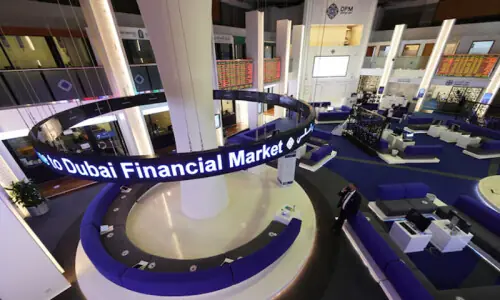
Institution-building is a challenging job particularly when adjustments are dictated by dynamics of a fast transforming economic scenario. And those organisations, which do not promptly address the creeping weaknesses while at the peak of their success, carry the potential risk of their unmaking.
Concepts like ‘change management’ or ‘culture change ‘ do help in turning faltering institutions into robust or vibrant organisations but are not as easy or simple to adopt. They require a long-term vision with clear objectives, sound strategy, action plan and effective implementation. Here the quality of human talent acquires critical importance.
In these hard times institution-building is now turning into an on-going process — a normal business. One such example is that of newly set up Sindh Revenue Board (SRB) which has won laurels for its pioneering job in collecting sales tax on services.
In these hard times, institution-building is turning into an on-going process — a normal business
Younger organisations, without historical baggage, are more often than not in tune with the times. And in its infancy, the SRB is aware of its need for a ‘change management plan’ so that ‘organisational development interventions’ can be ‘smoothly implemented.’ The objective is to ‘’inculcate a culture that is sustainable and capable of effectively responding to the future dynamics of the internal and external environment”.
And in this context the SRB is working to revamp its human resource development policy. While physical assets depreciate with the passage of time, the intellectual capacity of humans increases with professional experience. And it is the workforce that adds value to an organisation’s end product.
The human resource development plan includes an in-house job-specific training facility and professional courses in collaboration with the educational institutions like IBA. A key issue under consideration is to build an employee’s career and change from a ‘uniform Performance Evaluation Report’ system to ‘an effective appraisal system’ which is “quantifiable, job specific and linked to benefits such as promotion and bonus.”
But the ‘appraisal’ system can work on its own merit only if employees and the management are accountable to each other in this regard.
The core issue here is the creation of a mechanism that allows an officer, who does not agree with his annual performance report prepared by his supervising officer/officials, to make an appeal for reconsideration based on facts/inputs provided by him. If need be, a separate committee may be set to review the annual evaluation report.
In many institutions, the ‘appraisal’ system has not worked as intended while, still worse, a contract system blocks employees’ career development.
The flexible labour policy, adopted by the private sector, is partially responsible for institutional decay while effective appraisal systems are a far cry in public sector organisations.
But the SRB deserves credit on two counts. Since its inception its performance has excelled when compared to its older peers. It contributes 49pc of the total provincial government’s revenue receipts.
Second, it is aware of organisational challenges it faces in realising the enormous potential revenue from sales tax on services. Its reforms activities are a part of the Sindh Public Financial Management and include “feasible actions to generate ‘higher revenues’ while ‘lowering the cost of tax compliance for tax payers and enhancing equity and efficiency of the tax system.”
It is noteworthy that sales tax rate on services in Sindh have been reduced by 1pc annually from fiscal year 2015 from the maximum of 16pc; with the exception of telecommunication services which are taxed at 16pc.
Currently the tax rate is 13pc and the revenue target for this year is set at Rs78bn. The comparable tax rate for Punjab is 16pc and that of KP and Balochistan 15pc.
Businesses often advocate a cut in taxation rates to improve tax compliance. It has worked with the SBR in case of sales tax on services but not in the case of direct taxes, collected by the FBR, forcing the government to rely on withholding tax for the lion’s share in direct taxes.
The current strength of the personnel in the SRB stands at 174 including the board’s executive chairman and its members and tax adviser. They also handle the additional responsibility entrusted to them last year of collecting the workers welfare fund. A sum of Rs713m was collected and 20,000 notices were issued to industrial establishments in the province during the course of one year.
Compared to Rs16.6bn the FBR collected from sales tax on services in the year before devolution, the SRB’s collection in the first year of its operations was Rs25bn that surged to Rs61.6bn in the last fiscal year.
However, the SRB’s performance can also be judged from the potential of revenues that can be raised from the services sector that contribute currently close to 60pc of the country’s GDP and is ‘a significant driver of economic growth’ , according to the SRB annual report 2015-16.
The report assumes that 40pc of services are rendered in Sindh. To face future organisational challenges and improve revenue, the SRB is undertaking wide ranging reforms. These include enhancing human resource capacity and increased automation.
While risk- based audits have been already implemented, continuity of the reforms and their effectiveness will, however, remain a great challenge.
Published in Dawn, Business & Finance weekly, March 27th, 2017































